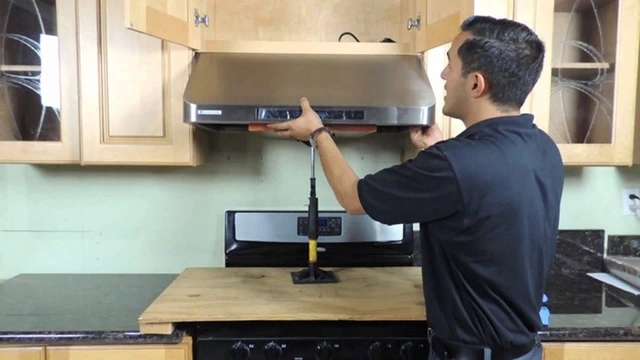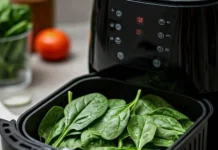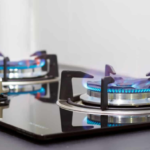Range hoods are an essential appliance in modern Vietnamese homes. Designed to eliminate smoke, cooking odors, and toxic gases, range hoods keep kitchen spaces clean, airy, and comfortable. With advanced filtration and suction technology, range hoods not only efficiently perform their basic functions but also enhance the interior design with a variety of styles and designs suitable for any kitchen space.
Should You Keep the Windows Open When Using a Range Hood?
When operating a range hood, opening or closing windows and kitchen doors significantly impacts its effectiveness. If the windows are open, outdoor air creates an airflow that pushes smoke and odors outside, reducing the range hood’s efficiency. Closing all the doors and windows can create negative pressure in the kitchen, hindering the range hood’s ability to suction smoke entirely. Therefore, while cooking, slightly opening a window or door allows for minimal intrusion of outdoor air while maintaining air circulation, optimizing the range hood’s performance and preventing grease buildup. After cooking and turning off the range hood, open all doors and windows to create an airflow that removes any remaining toxins from the kitchen.
Additionally, for safe and economical range hood usage, consider the following tips:
1. Use it at the Right Time: Turn on the range hood before you start cooking to eliminate toxic gases and odors from the beginning. Keep it running for a few minutes after you’re done cooking to ensure all traces of smells and gases are removed from the air.

2. Regular Maintenance: Clean the filters and inspect the fan and air ducts monthly. Removing grease and dirt will ensure stable performance and energy efficiency.
3. Choose the Right Size and Power: Select a range hood that matches your kitchen size and usage frequency. An oversized range hood will consume unnecessary energy.
4. Turn it Off When Not in Use: Save energy by turning off the range hood when not cooking.
5. Electrical Safety: Ensure your range hood is correctly installed and maintained to prevent electrical hazards. Disconnect the power if you won’t be using it for an extended period. Consider using a range hood with an automatic timer feature to conserve energy when you’re not in the kitchen.
6. Replace Filters Regularly: Replace the activated carbon filters every 6-8 months to maintain efficiency and prevent energy wastage due to overload.
Following these tips will not only save energy but also ensure the long-term safe and efficient operation of your range hood.
According to Nguoiduatin
Maximizing Efficiency with Your Air Conditioner: Useful Tips
 Efficiency with Your Air Conditioner: Useful Tips’>
Efficiency with Your Air Conditioner: Useful Tips’>To maximize your air conditioner’s effectiveness and efficiency, follow these key tips. Not only will your family benefit from improved health, but the unit will also experience extended longevity and durability.




































